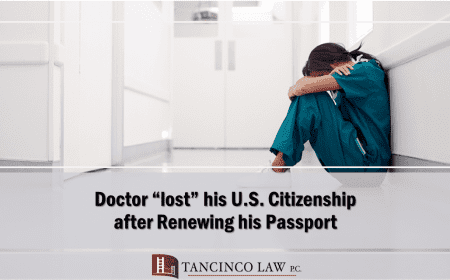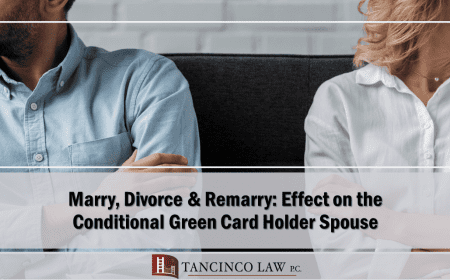When USCIS announced the expanded waiver policy on July 29, 2016, several individuals with approved petitions who are unable to adjust inquired on whether they are eligible to apply for this new waiver. Other than an approved family or employment based petition, the eligibility requirements are the presence of a qualifying relative and proof of extreme hardship that this qualifying relative will suffer if the waiver is not approved.
James entered the United States as crewman in 2013. On his last arrival, James decided not to return to his ship and overstayed his authorized stay. His main reason for staying is that his U.S. citizen father suffered a stroke and he had to stay to take care of him. In 2015, the petition filed on behalf of James became current. Unfortunately, James could not adjust his status because of his unlawful presence and that he has no 245i. At the moment, his father is very ill and might only have a few months to live. He also has a one year old U.S. citizen child born out of wedlock. What are the chances that James is going to qualify for the provisional waiver?
The Waiver Application
An application for waiver is not simply an immigration form that one has to accomplish and submit. It requires more than just answering the questions on the form. The law requires that the applicant show a qualifying relative and that the qualifying relatives will suffer extreme hardship should the applicant be ordered removed.
The qualifying relatives should be either a parent or a spouse or both, who are lawful permanent residents or are U.S. citizens. The children who were born in the United States may not be considered as “qualifying relatives” for purposes of the waiver application. It is not possible to be granted a waiver if the individual in deportation or seeking waiver only has U.S. citizen children. It will also be challenging if there is a qualifying U.S. spouse but he does not present circumstances that will support a finding of “extreme” hardship.
Proving Extreme Hardship
The standards for extreme hardship are very high. The hardship should be more than the difficulties that will be experienced by the qualifying relative as a result of the deportation. Several case law including the case of Matter of Cervantes, 22 I&N Dec. 560 had served as guides in determining what constitutes hardship. The factors that can be considered are (1) presence of green card holder or U.S. citizen family ties of the qualifying relative; (2) country conditions in the country of relocation and qualifying relative ties to that country; (3) financial impact of departure from the United States; (4) significant health conditions, particularly when tied to unavailability of suitable medical care in the country of relocation.
In filing the application for waiver of the fraud, the applicant must include all documents and testimonies from individuals to show the varying factors that may be the basis for showing the hardship. Each individual case is different and so are the circumstances of the case. In the case of James, the qualifying relative is his U.S. citizen father. The minor child is not considered a qualifying relative. But despite the fact that the child is not qualifying relative, he may include the hardship of the child in the waiver application. But if the U.S. citizen father passes away, James will no longer be eligible for waiver because he no longer has a qualifying relative. It is best for James to file the waiver application as soon as possible while his parent is still alive. The extreme hardship to the ailing parent is obviously present for purposes of the waiver.
(Atty. Lourdes Santos Tancinco may be reached at law@tancinco.com or at 1888 930 0808 or visit her website at tancinco.weareph.com/old or facebook.com/tancincolaw)




